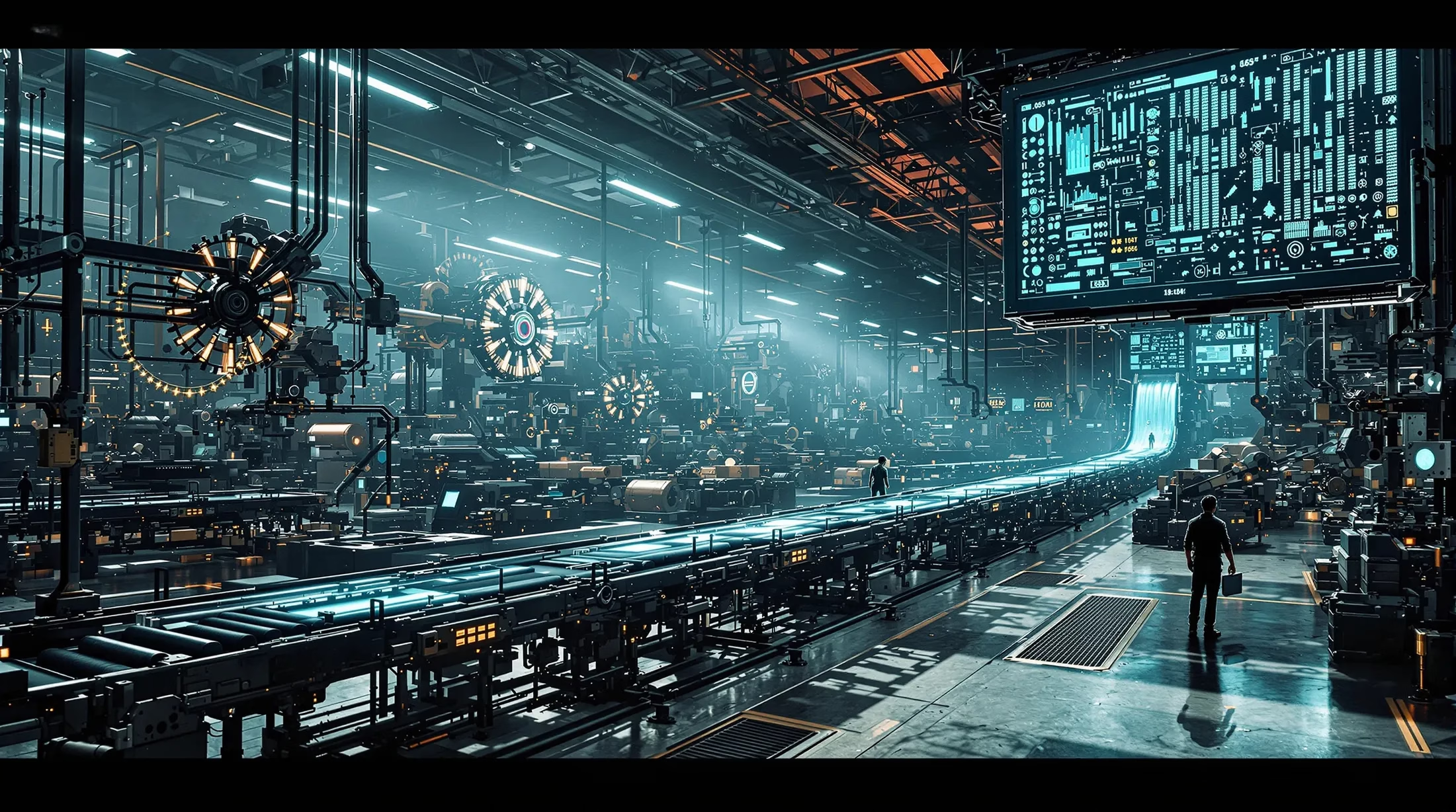Industrial Engineer: Roles, Responsibilities, and Career Outlook
Discover how Industrial Engineers shape the future of business operations and drive innovation across various sectors. From optimizing complex systems to implementing cutting-edge technologies, these professionals play a crucial role in enhancing organizational efficiency and productivity.
What is an Industrial Engineer?
Industrial Engineering represents a specialized engineering discipline that focuses on optimizing complex processes, systems, and organizations. Industrial engineers serve as crucial intermediaries between management objectives and operational realities, integrating people, materials, information, equipment, and energy to enhance efficiency, productivity, and quality across diverse industries.
Unlike traditional engineering fields, industrial engineering takes a comprehensive approach by examining entire operational ecosystems. This includes human factors, technological components, and resource utilization, with the primary goal of streamlining workflows while maintaining quality standards.
Defining the Role of an Industrial Engineer
Industrial engineers develop and implement strategies to enhance system efficiency across various sectors. Their work spans multiple industries, including:
- Manufacturing plants – redesigning assembly lines and reducing bottlenecks
- Healthcare facilities – optimizing patient flow and resource allocation
- E-commerce platforms – streamlining warehouse operations
- Financial institutions – improving process efficiency
- Distribution networks – enhancing logistics operations
Key Responsibilities of Industrial Engineers
- Analyzing existing workflows and production processes using statistical methods
- Designing and modifying systems to optimize resource management
- Implementing quality control measures and improvement projects
- Managing supply chains and facility layouts
- Conducting time and motion studies
- Applying lean manufacturing principles
- Leading process improvement initiatives
Skills and Tools Used by Industrial Engineers
Modern industrial engineers combine analytical thinking with advanced problem-solving capabilities to drive operational excellence. They utilize sophisticated software applications and data analysis techniques to extract meaningful insights and implement effective solutions.
Essential Skills for Industrial Engineers
| Technical Skills | Soft Skills |
|---|---|
|
– Statistical analysis – Process optimization – Data analysis – Project management – System modeling |
– Communication – Problem-solving – Team collaboration – Adaptability – Leadership |
Tools and Technologies in Industrial Engineering
- Computer simulation software for process modeling
- Statistical analysis programs
- Computer-aided design (CAD) software
- Project management applications
- Industry 4.0 technologies including IoT sensors
- Advanced analytics platforms
- Predetermined motion time systems
Industries and Sectors Employing Industrial Engineers
Industrial engineers find employment across diverse industries, leveraging their expertise in process optimization and systems improvement. Their comprehensive skill set in efficiency enhancement and resource management makes them invaluable across operational environments. The highest employment concentrations exist in architectural and engineering services, aerospace manufacturing, and machinery manufacturing, with annual salaries ranging from $95,370 to $111,790.
Manufacturing and Production
- Medical device manufacturing – optimizing production lines and implementing quality control systems
- Aerospace manufacturing – designing facility layouts and establishing work measurement standards
- Automotive production – implementing automated solutions and lean manufacturing principles
- Process optimization consultancy – providing expertise across manufacturing sectors
- Pharmaceutical production – managing automated packaging lines and ensuring regulatory compliance
Healthcare and Logistics
| Healthcare Applications | Logistics Operations |
|---|---|
|
– Patient flow optimization – Staff scheduling systems – Medical supply management – Wait time reduction – Process mapping |
– Distribution network design – Warehouse management – Transportation routing – Order fulfillment optimization – Returns management |
Methodologies and Approaches in Industrial Engineering
Industrial Engineering combines multiple disciplines, utilizing diverse methodologies to optimize complex systems. These approaches integrate mathematical, physical, and social sciences with engineering principles to achieve operational excellence. The methodological framework encompasses production planning, mathematical optimization, supply chain management, and human factors engineering.
Lean and Six Sigma in Industrial Engineering
- Lean methodology focuses on eliminating eight types of waste:
- Defects in production
- Overproduction issues
- Waiting time
- Non-utilized talent
- Transportation inefficiencies
- Inventory excess
- Motion waste
- Excess processing
- Six Sigma implementation follows the DMAIC framework:
- Define project scope
- Measure current performance
- Analyze root causes
- Improve processes
- Control results
Ergonomics and Safety Considerations
Ergonomics represents a critical methodology within industrial engineering that focuses on designing systems, processes, and products to accommodate human capabilities and limitations. Industrial engineers apply ergonomic principles to optimize worker-environment interactions through:
- Workstation design optimization
- Task analysis and modification
- Anthropometric data measurement
- Biomechanical force evaluation
- Musculoskeletal disorder prevention
- Tool and equipment adaptation
Safety engineering complements ergonomics through systematic hazard management. The comprehensive safety programs developed by industrial engineers include:
- Risk assessments and mitigation strategies
- Job safety analysis protocols
- Preventive maintenance schedules
- Safety management systems
- Incident investigation procedures
- Performance monitoring metrics
Career Outlook for Industrial Engineers
The field of industrial engineering shows exceptional growth potential, with a projected 12% increase in employment from 2023 to 2033. This expansion will create approximately 40,900 new positions, adding to the existing 336,600 jobs. Industrial engineers increasingly advance to management roles, leveraging their unique combination of technical expertise and business acumen.
Employment Trends and Opportunities
| Traditional Industries | Emerging Sectors |
|---|---|
|
– Aerospace manufacturing – Automotive production – Pharmaceutical manufacturing – Industrial production |
– Healthcare systems – Technology services – Logistics operations – Consulting services |
Career paths include roles such as Industrial Production Manager, Management Analyst, Supply Chain Manager, Quality Engineer, Operations Analyst, and Ergonomist. The discipline’s versatility enables professionals to pursue specialized positions or transition into consulting roles across multiple industries.
Salary Expectations and Wage Distribution
Industrial engineers enjoy competitive compensation packages that reflect their valuable contributions to organizational efficiency. Salary progression correlates strongly with:
- Industry sector specialization
- Geographic location
- Years of experience
- Educational qualifications
- Professional certifications
- Management responsibilities
Premium compensation packages are particularly notable in aerospace manufacturing, pharmaceutical production, and technology sectors. Specialists in automation, data analytics, and sustainable manufacturing often command additional salary premiums, further enhancing earning potential in this dynamic field.







